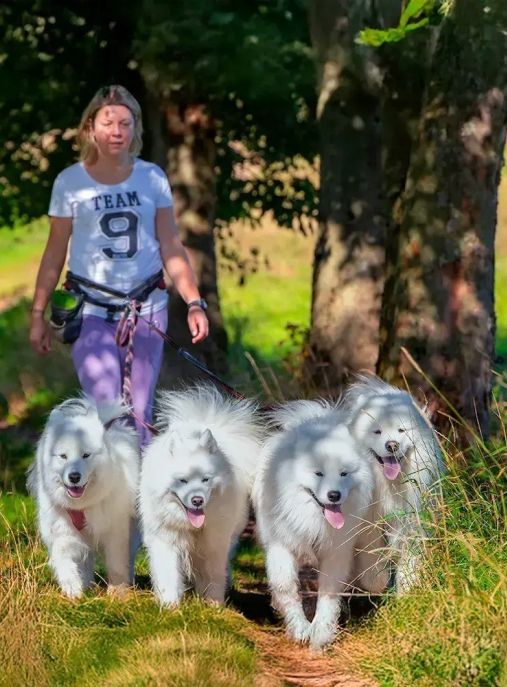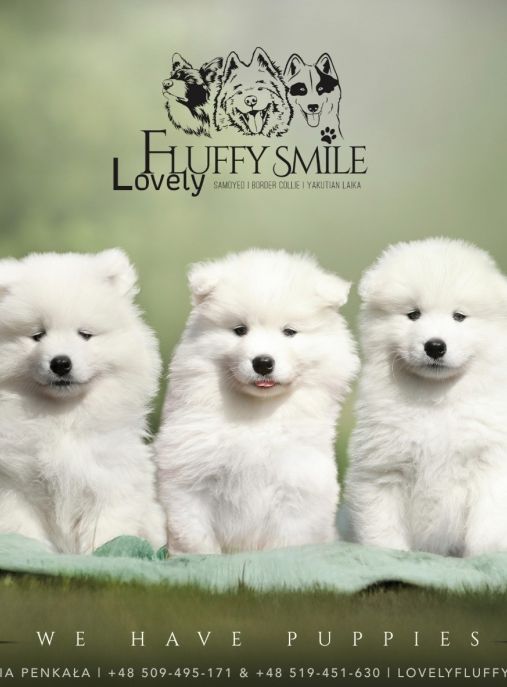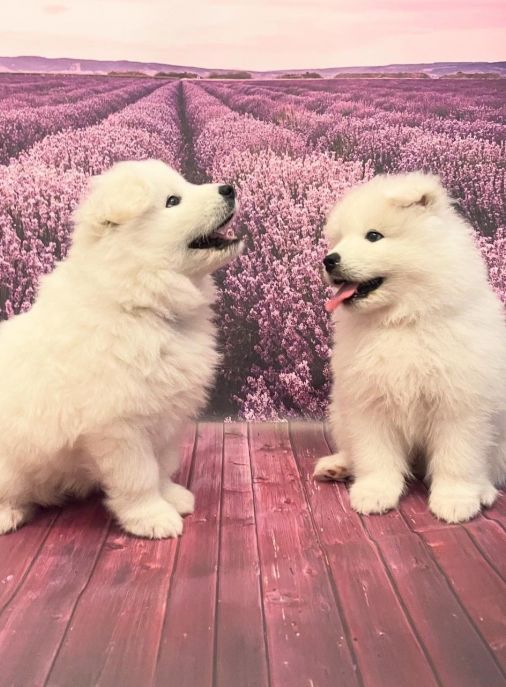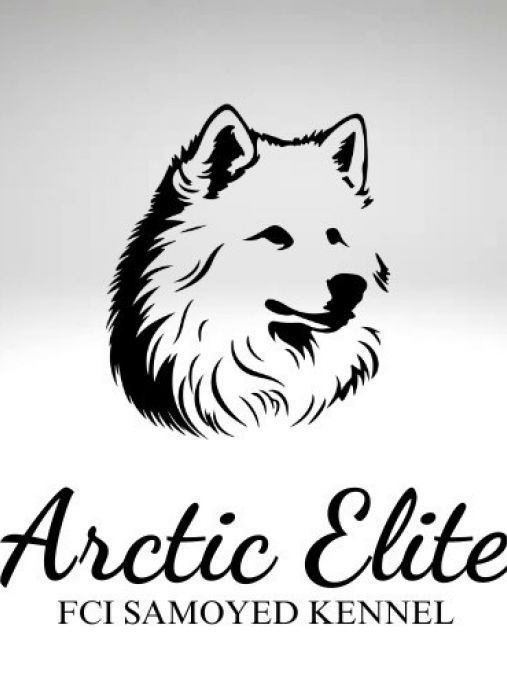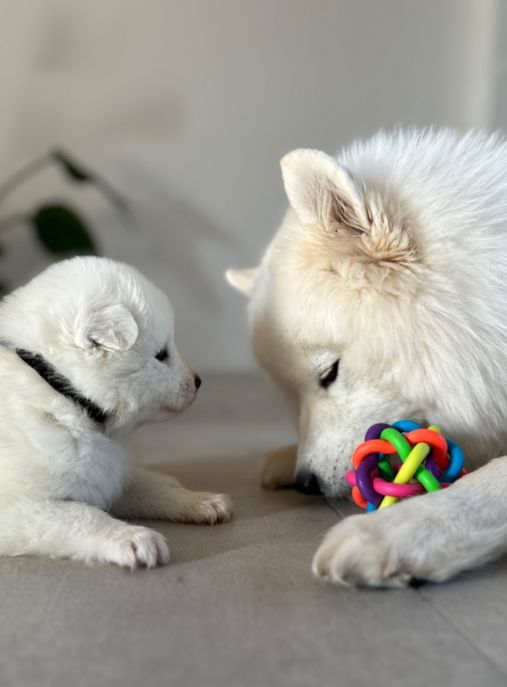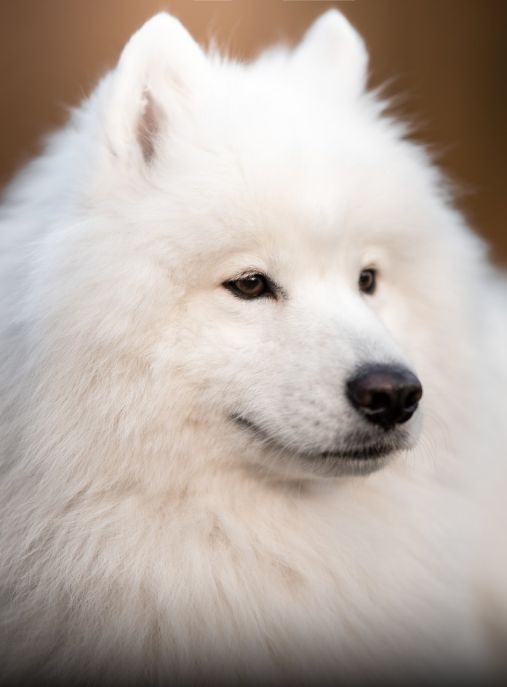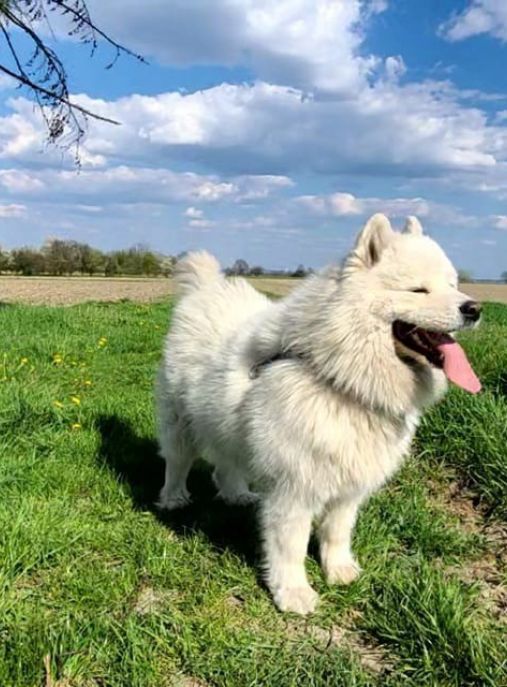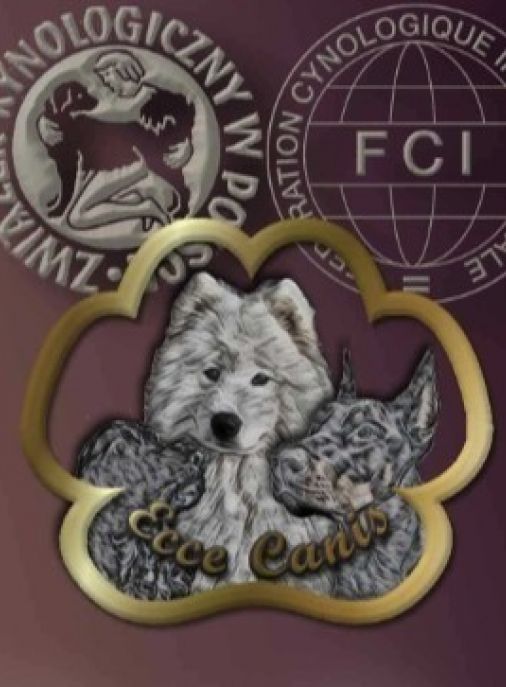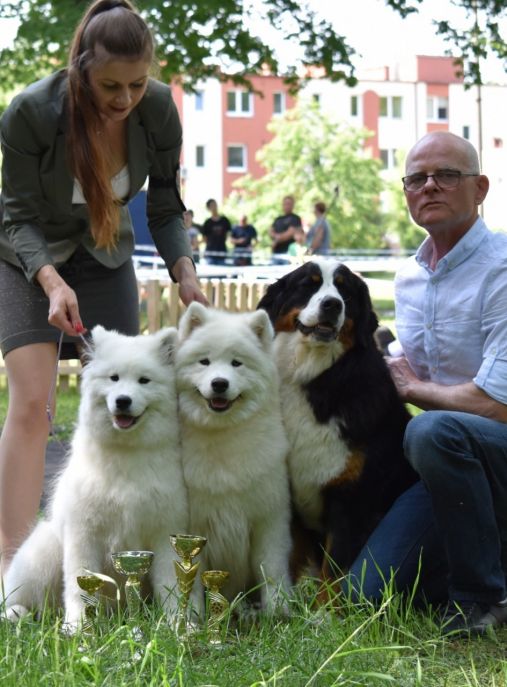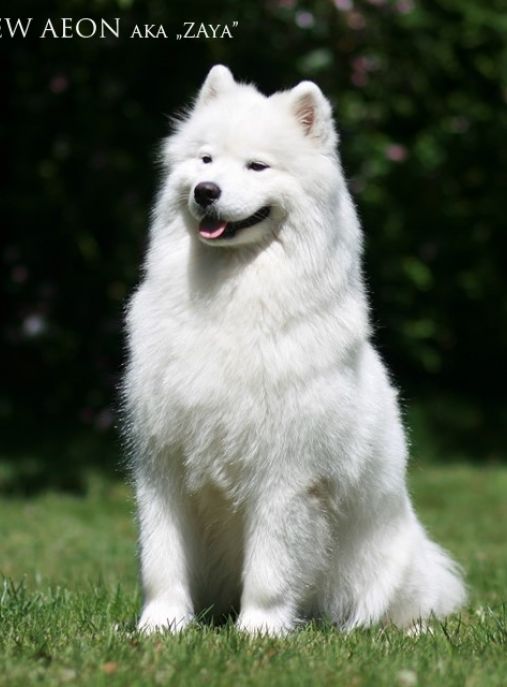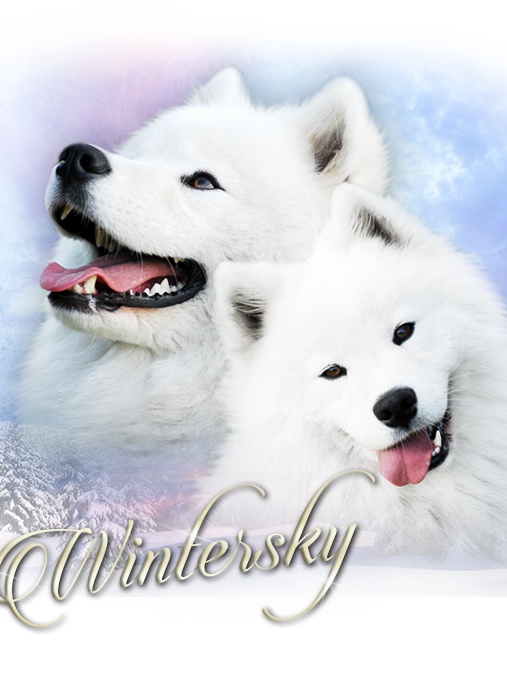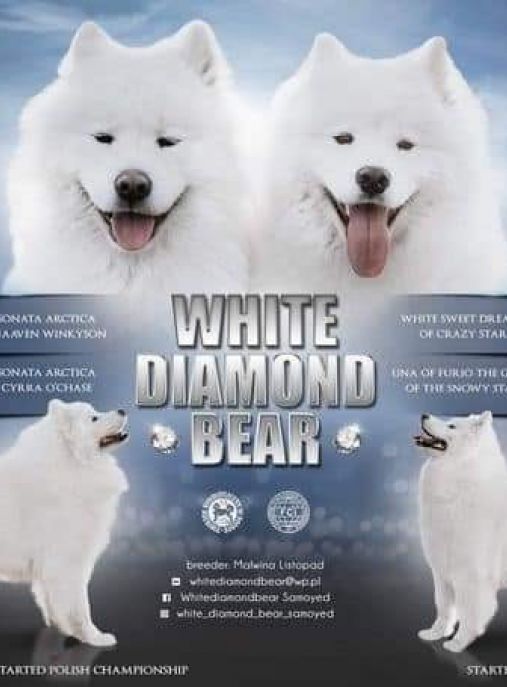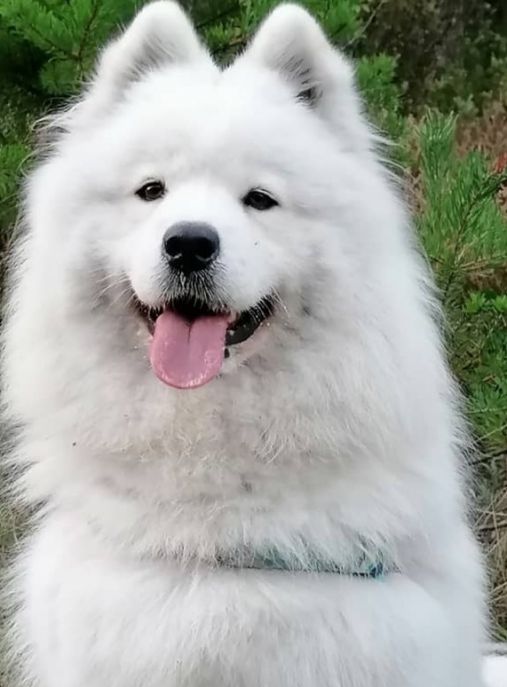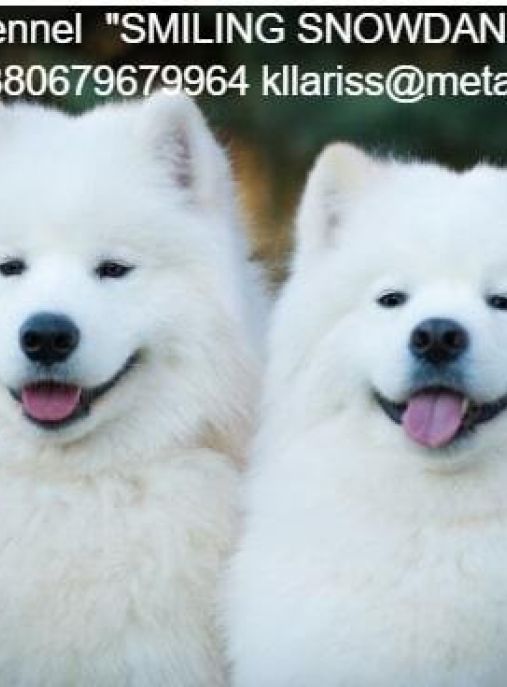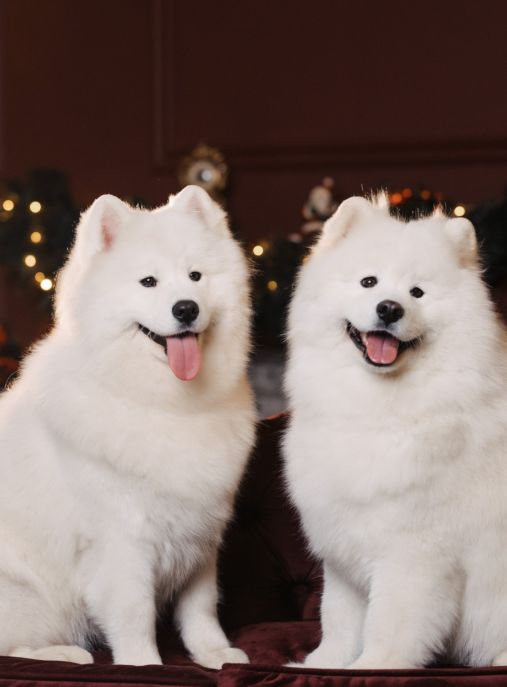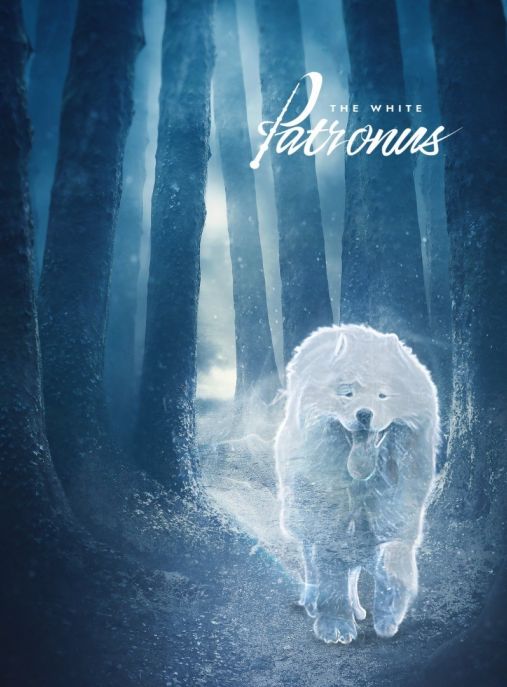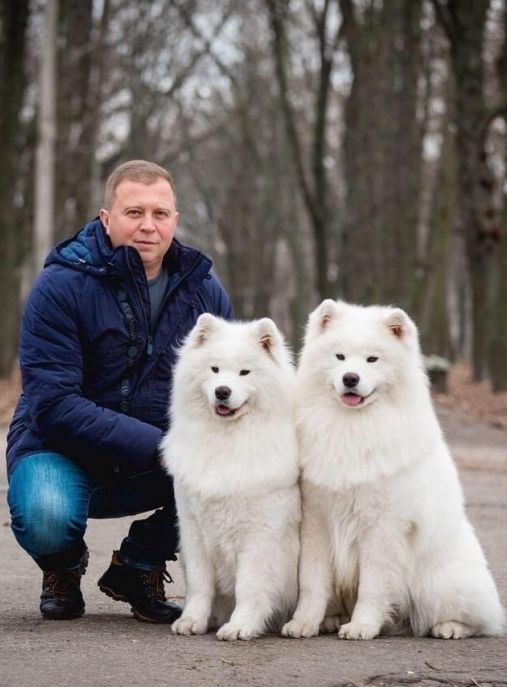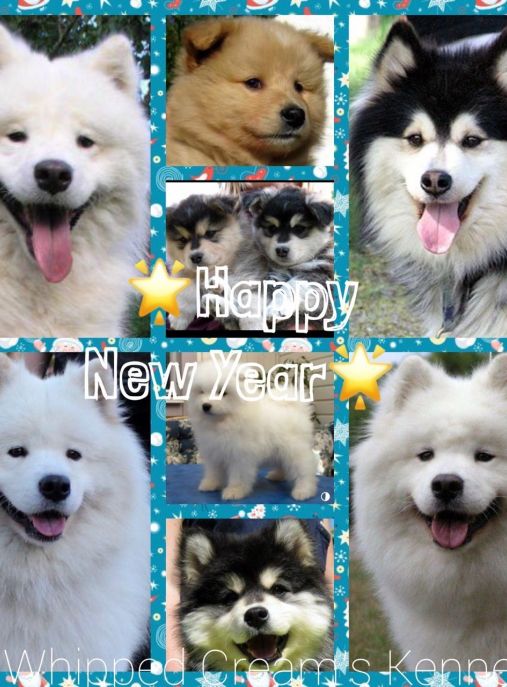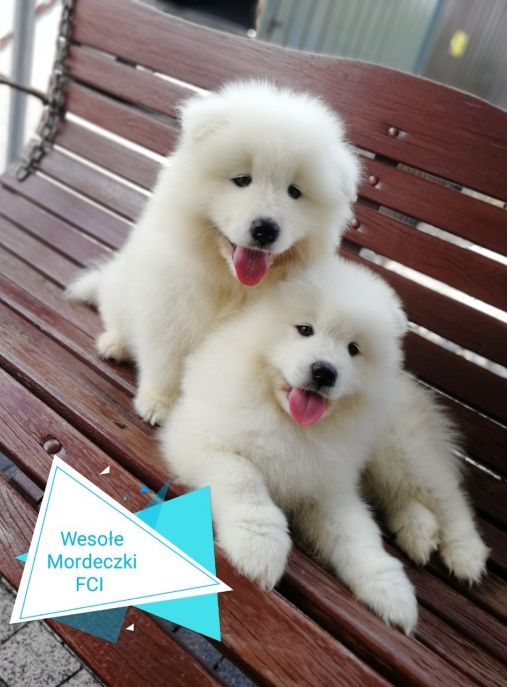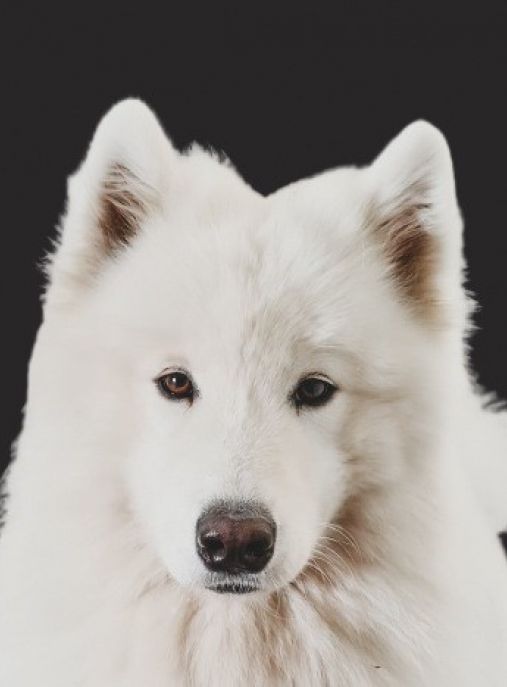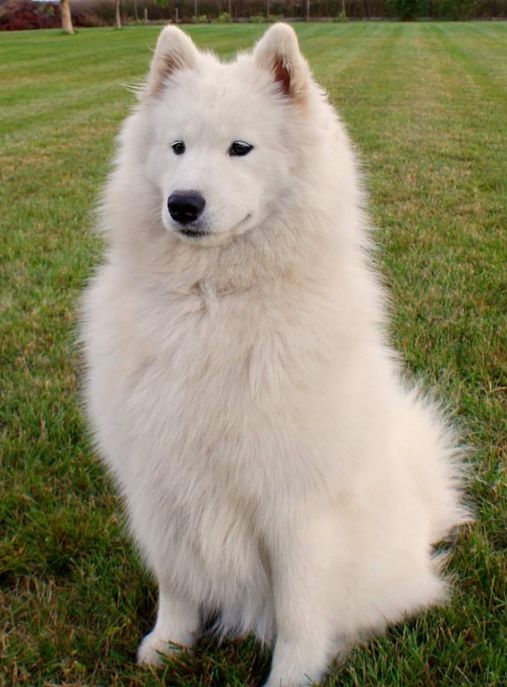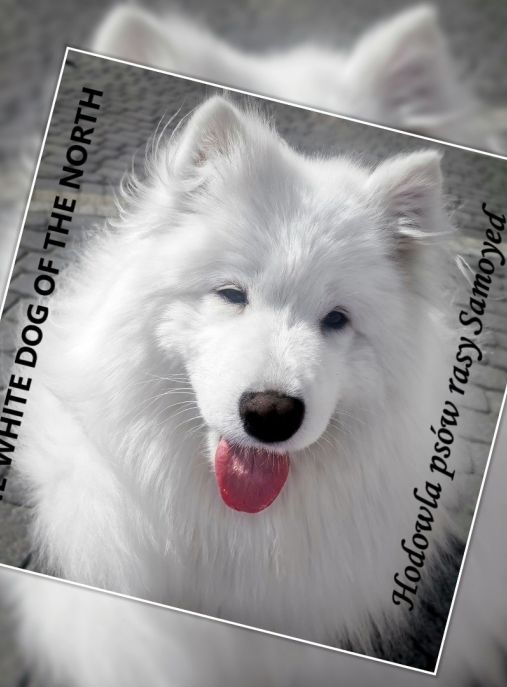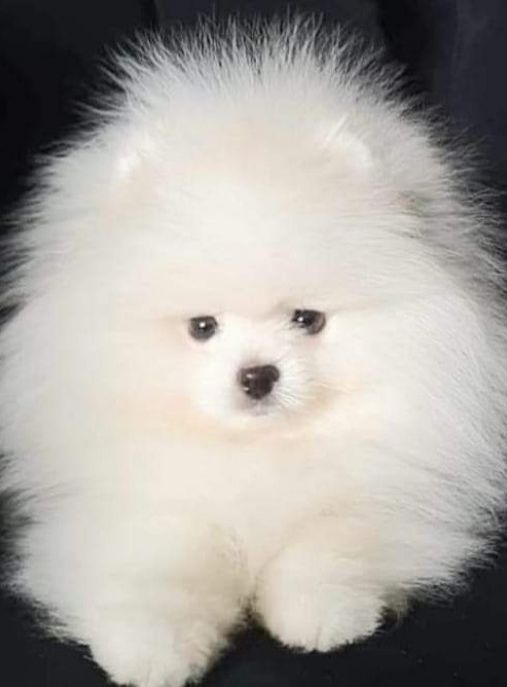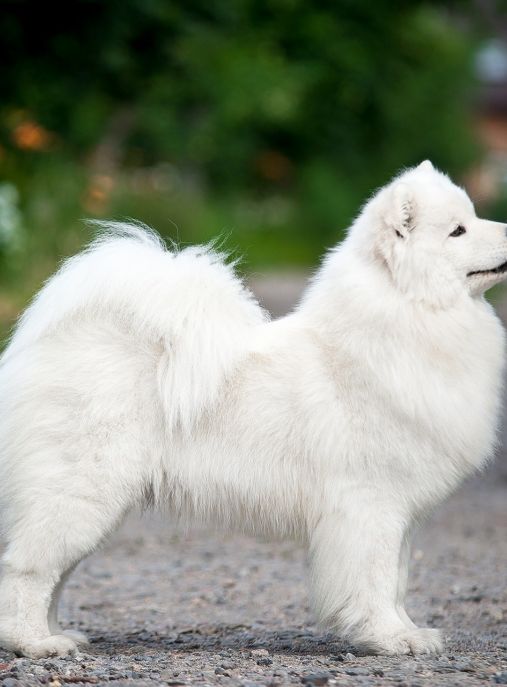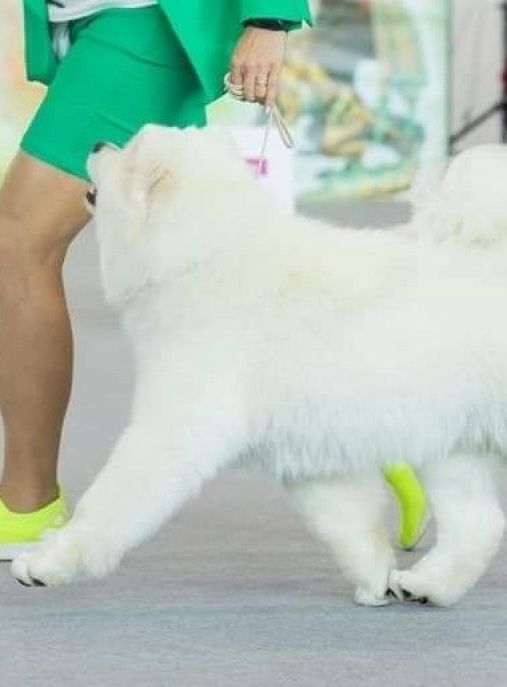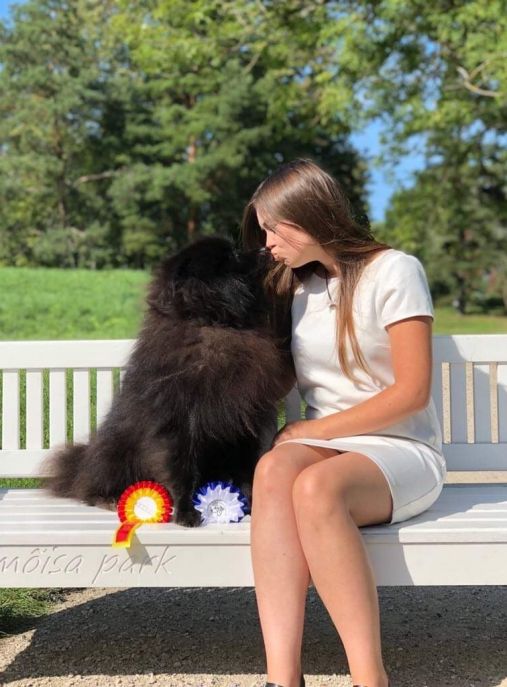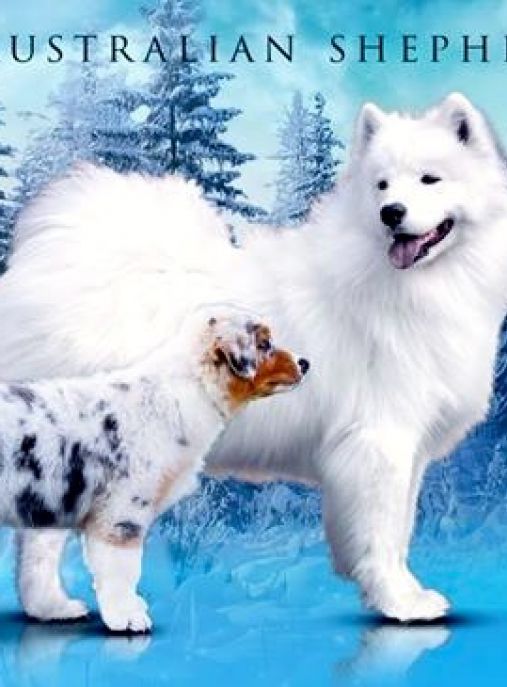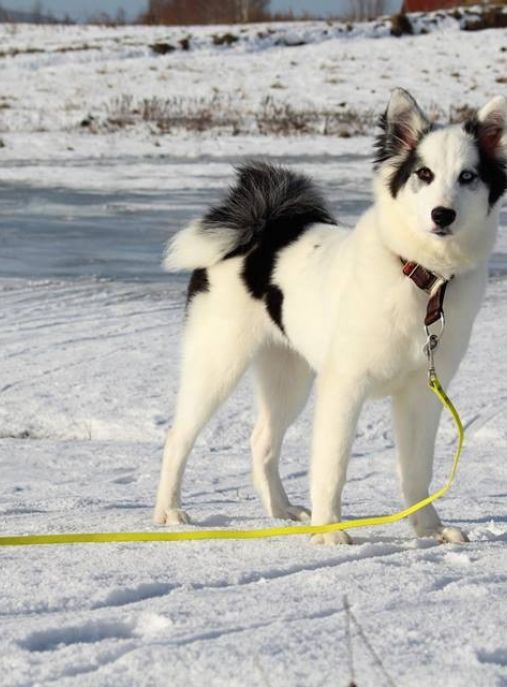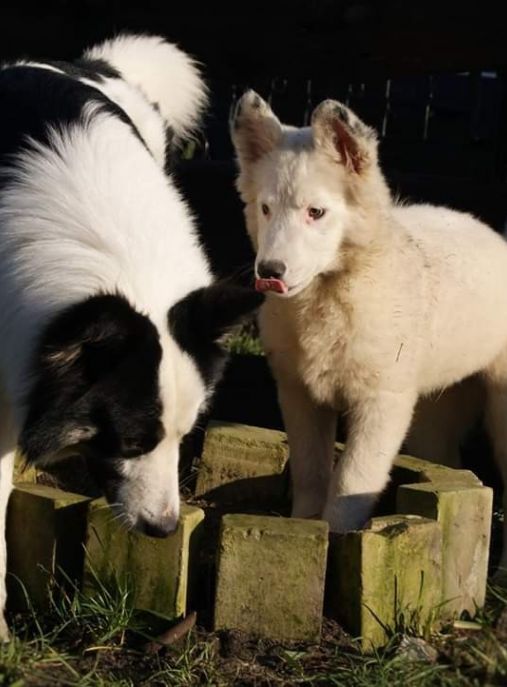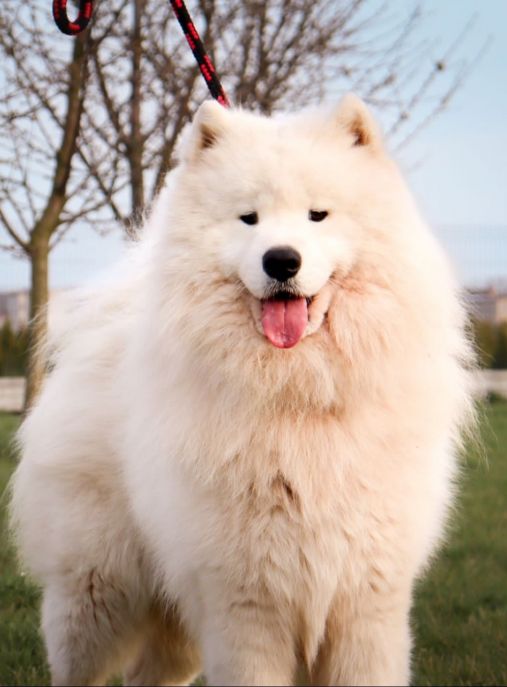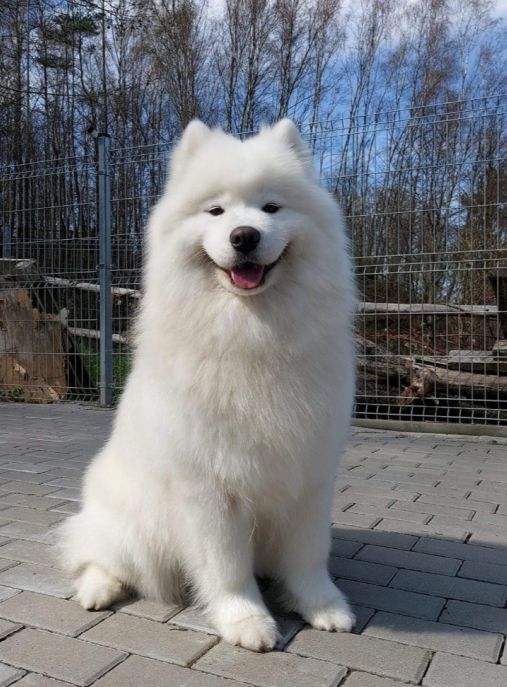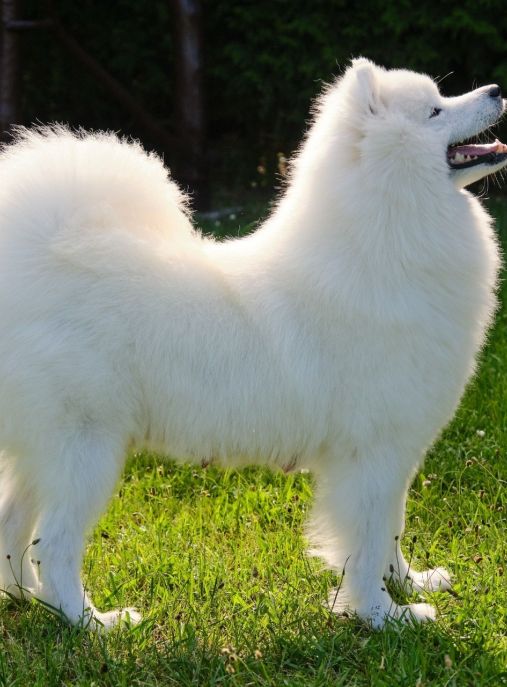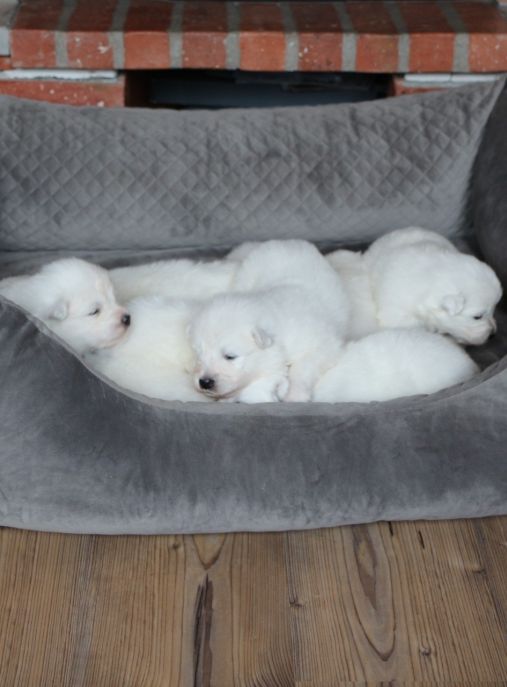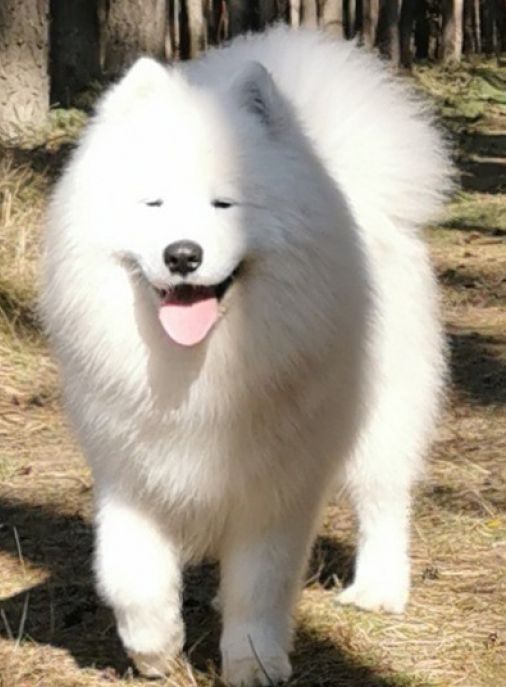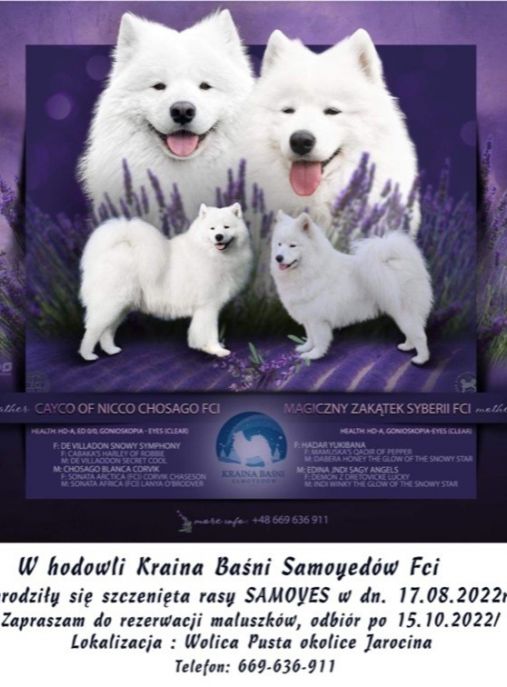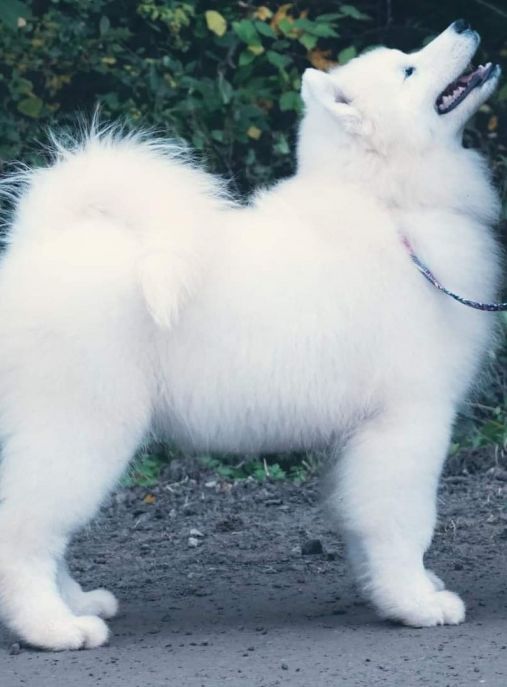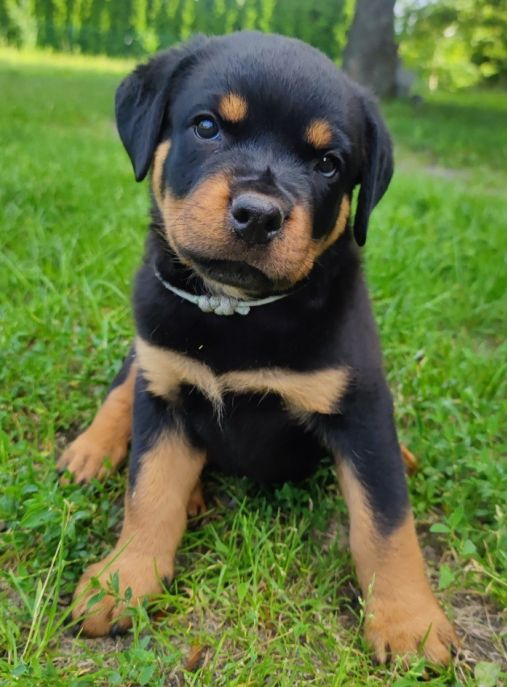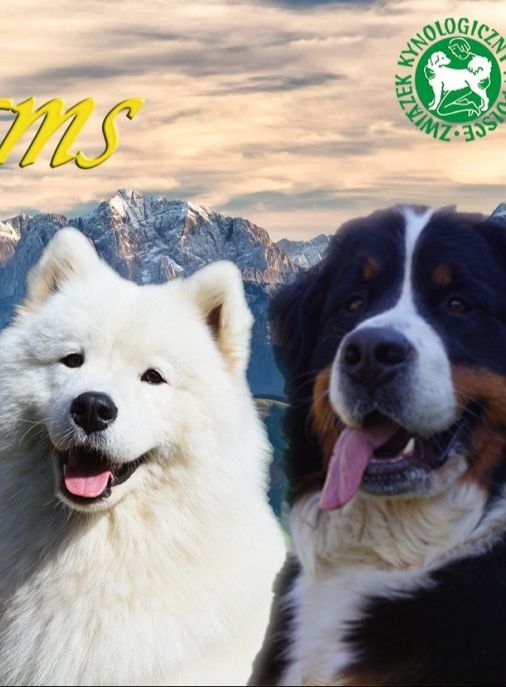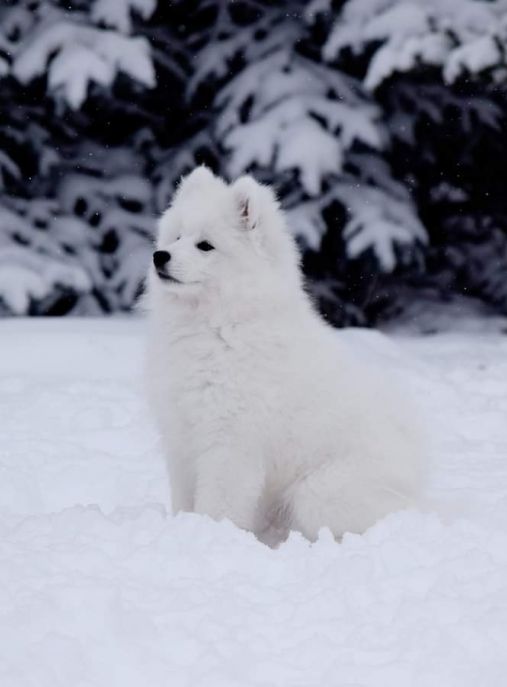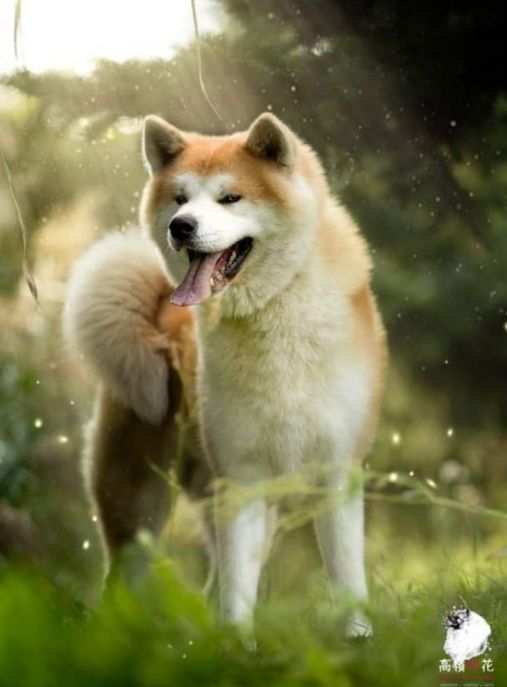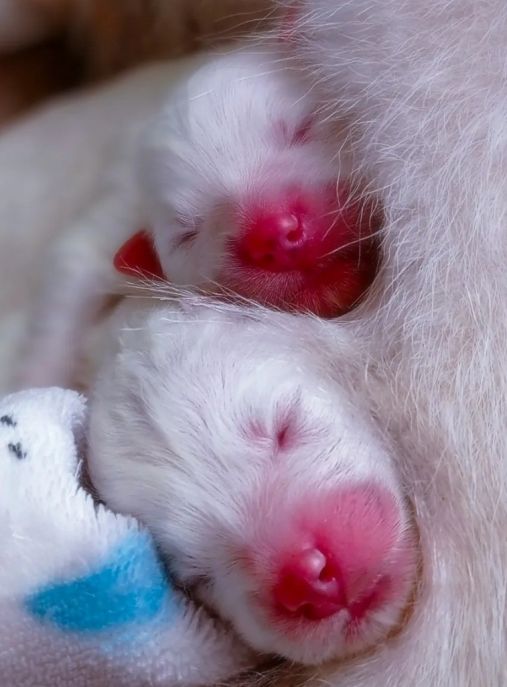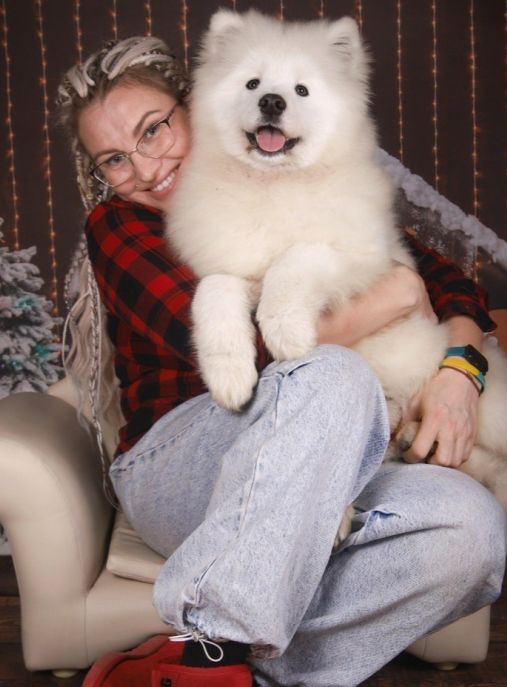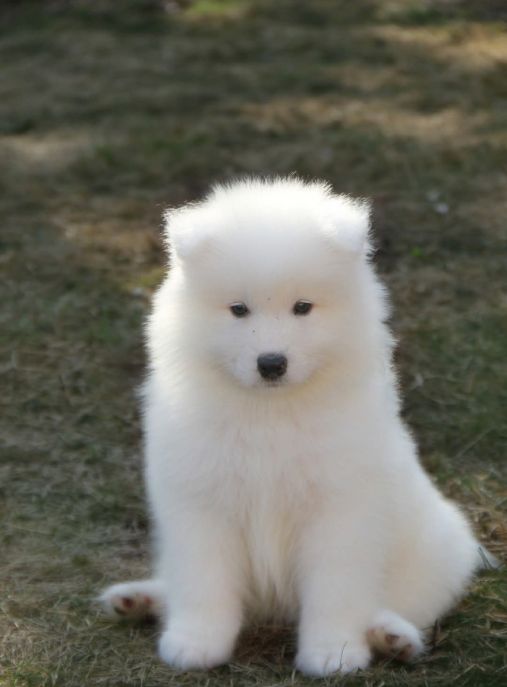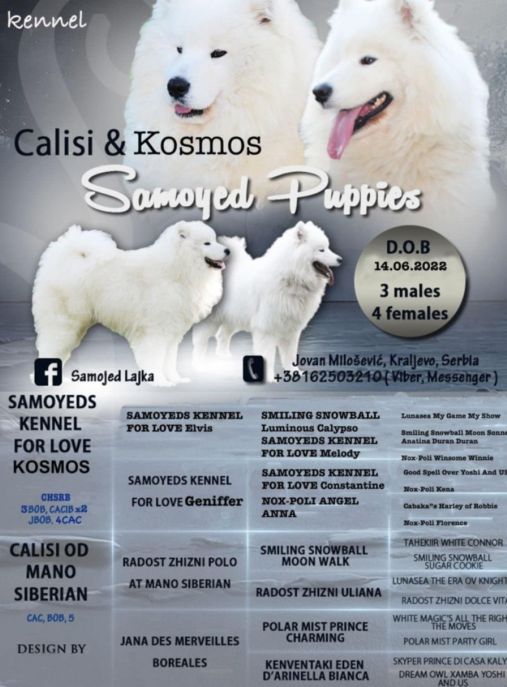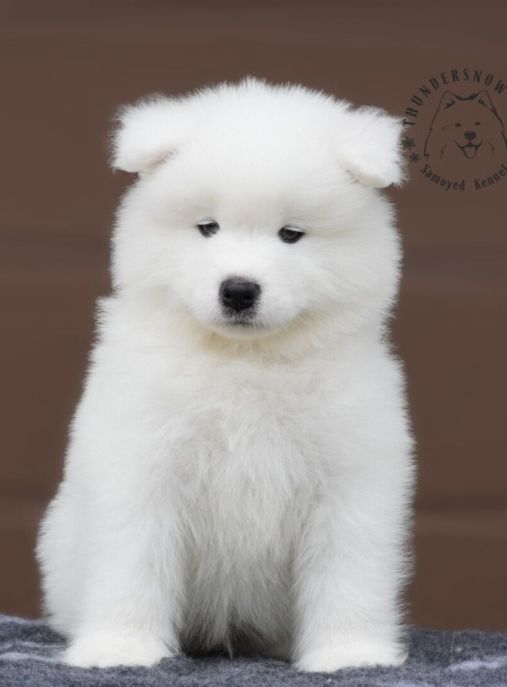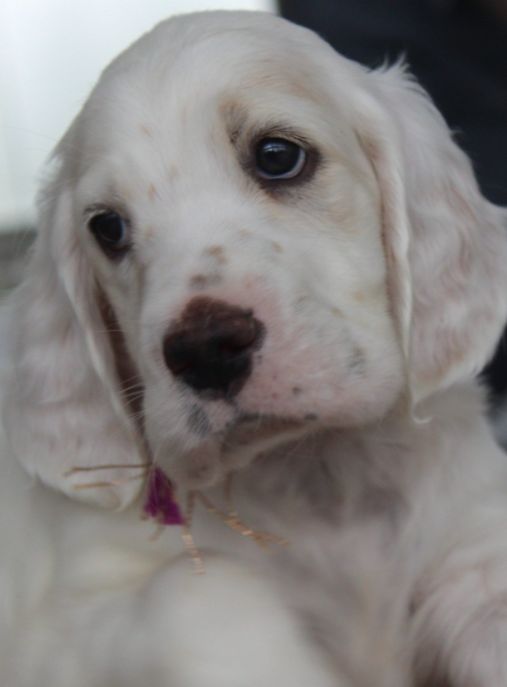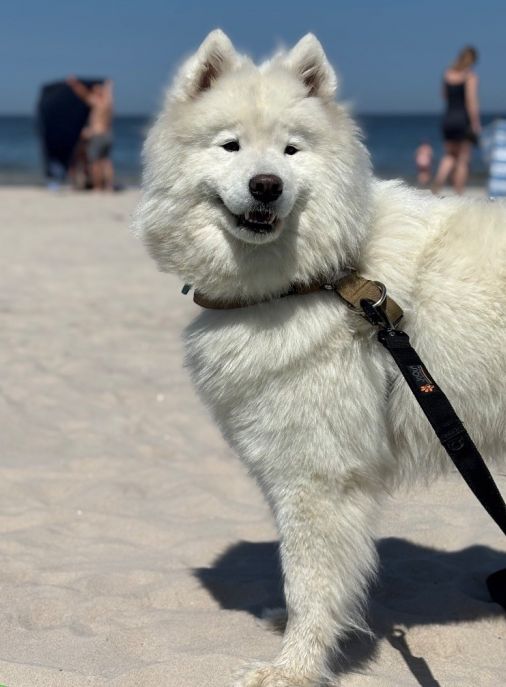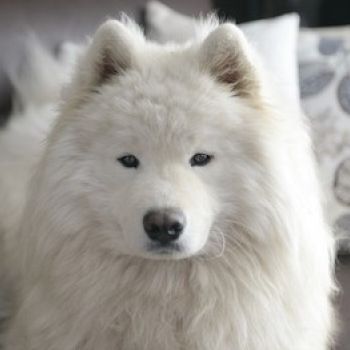The Samoyed dog breed is a majestic and beautiful breed that has captured the hearts of dog lovers around the world. With their striking white coat, smiling face, and friendly demeanor, Samoyeds are truly a sight to behold. This breed is known for its loyalty, intelligence, and gentle nature, making them excellent companions and family pets.
Originating from the Siberian region of Russia, the Samoyed breed has a rich history that dates back thousands of years. They were originally bred by the Samoyede people, a nomadic tribe who used these dogs for herding reindeer, pulling sleds, and guarding their camps. The Samoyede people relied heavily on their dogs for survival in the harsh Arctic climate, and the breed's adaptability and endurance were crucial to their way of life.
According to the FCI (Fédération Cynologique Internationale) typology, the Samoyed breed belongs to Group 5 - Spitz and Primitive types. This group includes other spitz-type breeds such as the Akita, Alaskan Malamute, and Siberian Husky. The Samoyed is classified under Section 1 - Nordic Sledge Dogs, which also includes the Greenland Dog and the Canadian Eskimo Dog.
Samoyeds are known for their friendly and sociable nature, making them excellent family pets. They are great with children and get along well with other animals, including other dogs. However, due to their herding instincts, they may try to chase smaller animals, so early socialization and training are important.
In terms of physical characteristics, Samoyeds are medium-sized dogs with a strong and muscular build. Males typically weigh between 45-65 pounds (20-30 kg), while females are slightly smaller, weighing between 35-55 pounds (16-25 kg). They have a well-proportioned body, with a deep chest and a straight back. The breed's most distinctive feature is their luxurious double coat, which consists of a dense, weather-resistant outer coat and a soft, thick undercoat. This coat helps them withstand the extreme cold temperatures of their native Siberia.
The Samoyed's coat is always white, although some cream or biscuit-colored markings may be present on their ears. Their coat requires regular grooming to prevent matting and keep it looking its best. Despite their thick coat, Samoyeds are surprisingly clean dogs and have minimal doggy odor.
In terms of height, male Samoyeds typically stand between 21-23.5 inches (53-60 cm) at the shoulder, while females are slightly smaller, measuring between 19-21 inches (48-53 cm). Their height, combined with their sturdy build, gives them a balanced and elegant appearance.
The average life expectancy of a Samoyed is around 12-14 years, although with proper care and a healthy lifestyle, some individuals have been known to live even longer. Like all breeds, Samoyeds are prone to certain health issues, including hip dysplasia, progressive retinal atrophy (PRA), and diabetes. Regular veterinary check-ups, a balanced diet, and regular exercise can help minimize the risk of these conditions.
Samoyeds are highly intelligent dogs and thrive on mental stimulation and physical activity. They excel in various dog sports and activities, including obedience, agility, and herding trials. They are also well-suited to activities such as hiking, jogging, and even pulling sleds.
One interesting fact about Samoyeds is their unique smiling expression. Their upturned mouth corners give them a perpetual smile, which adds to their friendly and approachable appearance. This smile is not just for show; it is believed to have evolved as a way to prevent drooling in cold weather, as the upturned corners help keep their mouths dry.
In conclusion, the Samoyed dog breed is a remarkable and versatile breed with a fascinating history. Their striking appearance, friendly nature, and intelligence make them a popular choice for families and individuals alike. Whether as a working dog, a show dog, or a beloved family pet, the Samoyed is sure to bring joy and companionship to any home.

The Samoyed dog breed is renowned for its charming and friendly character. With their striking white coats, smiling faces, and gentle demeanor, they have captured the hearts of many dog lovers around the world. These dogs are not only beautiful but also possess a unique set of characteristics that make them exceptional companions.
One of the most prominent traits of Samoyeds is their friendly and sociable nature. They are known for being excellent family dogs and get along well with children, other pets, and even strangers. Their friendly disposition makes them poor guard dogs, as they are more likely to greet an intruder with a wagging tail rather than a bark. However, their alertness and tendency to bark when they sense something unusual make them good watchdogs.
Samoyeds are highly intelligent dogs, which can be both a blessing and a challenge for their owners. They are quick learners and thrive on mental stimulation. However, their intelligence can also lead to mischief if they become bored or neglected. Engaging them in various activities like puzzle toys, obedience training, and agility exercises is crucial to keep their minds occupied and prevent destructive behavior.
These dogs have a strong sense of loyalty and devotion towards their families. They crave human companionship and can become anxious or depressed if left alone for extended periods. Samoyeds thrive in households where they receive ample attention, love, and affection. They are not suited for people who spend most of their time away from home or those looking for an independent breed.
Samoyeds have a playful and energetic nature. They love to frolic and engage in outdoor activities. Regular exercise is essential to keep them physically and mentally stimulated. Long walks, jogs, or play sessions in a securely fenced yard are ideal for meeting their exercise needs. They also enjoy participating in dog sports like obedience, agility, and even sledding.
Training a Samoyed requires patience, consistency, and positive reinforcement techniques. They respond well to rewards-based training methods, such as treats, praise, and play. Harsh training methods or punishment can be counterproductive and damage the bond between the dog and its owner. Early socialization is crucial to expose them to different people, animals, and environments, ensuring they grow up to be well-rounded and confident dogs.
Grooming a Samoyed can be a time-consuming task due to their thick, double-layered coat. Regular brushing is necessary to prevent matting and keep their fur clean and healthy. They shed heavily twice a year, known as "blowing their coat," during which daily brushing becomes essential. Despite the grooming challenges, their stunning appearance and fluffy coat make them irresistible.
In conclusion, Samoyeds are friendly, intelligent, and loyal dogs that make wonderful family pets. They thrive on human companionship, require mental and physical stimulation, and need consistent training and socialization. While their grooming needs can be demanding, the joy and love they bring to their owners' lives make it all worthwhile. If you are looking for a devoted and affectionate companion, the Samoyed breed might be the perfect fit for you.
The Samoyed breed is known for its beautiful white coat, friendly nature, and playful personality. Caring for a Samoyed requires attention to their specific needs to ensure they lead a healthy and happy life. Here are some tips on how to care for Samoyed dogs, including what to do and what not to do:
1. Grooming: Samoyeds have a thick double coat that requires regular grooming. Brush their coat at least twice a week to prevent matting and remove loose hair. During shedding seasons, daily brushing is recommended. Avoid shaving their coat as it provides insulation from both heat and cold.
2. Bathing: Samoyeds have a self-cleaning coat, and excessive bathing can strip their fur of its natural oils. Aim to bathe them every 2-3 months or when they get dirty. Use a gentle dog shampoo and ensure thorough rinsing to prevent skin irritation.
3. Exercise: Samoyeds are an active breed that requires regular exercise to keep them physically and mentally stimulated. Plan for at least one hour of exercise daily, which can include walks, runs, or playtime in a securely fenced yard. Avoid leaving them alone for long periods as they thrive on human companionship.
4. Training: Samoyeds are intelligent and eager to please, making them relatively easy to train. Start obedience training early to establish good behavior patterns. Use positive reinforcement techniques such as treats, praise, and play to motivate them. Avoid harsh training methods as they can lead to fear or aggression.
5. Socialization: Samoyeds are naturally friendly, but early socialization is crucial to ensure they are well-rounded and comfortable in various situations. Expose them to different people, animals, and environments from a young age. Arrange playdates with other dogs and enroll them in puppy classes to learn proper social skills.
6. Dental Care: Dental hygiene is essential for Samoyeds to prevent dental diseases. Brush their teeth regularly using a dog-specific toothbrush and toothpaste. Provide dental chews or toys to help keep their teeth clean. Avoid using human toothpaste or products containing xylitol, as they can be toxic to dogs.
7. Nutrition: Feed your Samoyed a balanced and high-quality diet that meets their nutritional needs. Consult with a veterinarian to determine the appropriate portion size and feeding schedule based on their age, weight, and activity level. Avoid overfeeding or feeding them table scraps, as Samoyeds can easily gain weight.
8. Health Care: Regular veterinary check-ups are essential to monitor your Samoyed's overall health. Keep up with vaccinations, flea and tick prevention, and heartworm medication. Schedule annual dental cleanings to maintain their oral health. Be aware of breed-specific health issues such as hip dysplasia and progressive retinal atrophy (PRA).
9. Temperature Regulation: Samoyeds have a thick coat that makes them more susceptible to heat exhaustion. Provide them with access to shade, fresh water, and a cool environment during hot weather. Avoid leaving them in hot cars or exposing them to extreme temperatures for extended periods.
10. Love and Attention: Samoyeds thrive on love, attention, and being part of the family. Spend quality time with them, provide mental stimulation through interactive toys, and include them in family activities. Avoid leaving them alone for long periods as they can become anxious or develop destructive behaviors.
Remember, each Samoyed is unique, and it's important to adapt these tips to suit your dog's individual needs. By providing proper care, love, and attention, you can ensure your Samoyed lives a long, healthy, and happy life.
The common color of Samoyed dogs is a stunning and pure white, reminiscent of freshly fallen snow. This pristine hue is one of the defining characteristics of this beloved breed. The Samoyed's coat is a testament to their Arctic heritage, as it not only provides insulation against the cold but also showcases their regal beauty.
The white color of Samoyeds is often described as being as pure as the driven snow. It is a brilliant and radiant shade that seems to glow in the sunlight, giving these dogs an ethereal and almost angelic appearance. Their coat is typically dense and plush, with individual hairs standing upright, creating a fluffy and cloud-like effect.
The white coloration of Samoyeds is not only visually striking but also serves a practical purpose. In their native Siberia, where temperatures can plummet to extreme lows, the white coat helps them blend seamlessly with their snowy surroundings, providing camouflage and protection from predators. This adaptation has been passed down through generations, making the white coat an essential part of the breed's identity.
The white color of Samoyeds is not uniform throughout their entire body. Often, their face, ears, and sometimes even their tail may have slight cream or biscuit-colored markings. These markings, known as "biscuit" or "cream points," add a touch of uniqueness to each individual dog, enhancing their overall charm and appeal.
Maintaining the pristine white coat of a Samoyed requires regular grooming and care. Their double-layered coat is designed to repel dirt and moisture, but it does require frequent brushing to prevent matting and tangling. Despite their white color, Samoyeds are surprisingly clean dogs, and their coat naturally sheds dirt and debris, helping to keep them looking immaculate.
The white coat of Samoyeds is not only visually captivating but also serves as a reflection of their temperament. These dogs are known for their friendly and gentle nature, and their white coat seems to embody their pure and kind-hearted spirit. It is a color that symbolizes innocence, loyalty, and joy, which are all qualities that Samoyeds possess in abundance.
In conclusion, the common color of Samoyed dogs is a breathtaking and pristine white. This color not only adds to their visual appeal but also serves as a practical adaptation to their Arctic origins. The white coat of a Samoyed is a testament to their regal beauty, their ability to blend into snowy landscapes, and their gentle and loving nature. It is a color that perfectly complements the essence of this remarkable breed.
The Samoyed breed is known for its stunning appearance, friendly nature, and overall good health. These beautiful dogs have a thick double coat, which helps them withstand cold climates. However, like any other breed, Samoyeds are prone to certain health issues that owners should be aware of. With proper care and attention, these issues can be managed effectively, ensuring a long and healthy life for your furry friend.
One of the most common health concerns in Samoyeds is hip dysplasia. This condition occurs when the hip joint doesn't develop properly, leading to discomfort, pain, and difficulty in movement. Regular exercise, a balanced diet, and maintaining a healthy weight can help reduce the risk of hip dysplasia. Additionally, it is advisable to have your Samoyed's hips evaluated by a veterinarian to detect any signs of dysplasia early on.
Another prevalent health issue in Samoyeds is progressive retinal atrophy (PRA). PRA is a genetic disorder that causes the degeneration of the retina, leading to vision loss and eventual blindness. Responsible breeders conduct eye screenings to ensure that their breeding dogs are free from PRA. Regular eye check-ups with a veterinary ophthalmologist are recommended to monitor your Samoyed's eye health and detect any signs of PRA.
Samoyeds are also prone to allergies, particularly food allergies and atopic dermatitis. Food allergies can manifest as skin irritations, gastrointestinal issues, or chronic ear infections. To manage food allergies, it is crucial to feed your Samoyed a high-quality, hypoallergenic diet and avoid common allergens such as grains, beef, chicken, and dairy. Atopic dermatitis, on the other hand, is an allergic reaction to environmental triggers like pollen, dust mites, or mold. Regular grooming, including frequent brushing and bathing, can help reduce the impact of these allergies on your Samoyed's skin.
Additionally, Samoyeds are susceptible to certain autoimmune disorders, such as hypothyroidism and autoimmune hemolytic anemia (AIHA). Hypothyroidism occurs when the thyroid gland doesn't produce enough hormones, leading to weight gain, lethargy, and skin problems. Regular blood tests can help diagnose and manage this condition, and medication can be prescribed to supplement the hormone deficiency. AIHA, on the other hand, is a condition where the immune system attacks and destroys red blood cells. Prompt veterinary intervention is crucial in managing AIHA, which may involve blood transfusions and immunosuppressive medications.
To ensure the overall health and well-being of your Samoyed, regular veterinary check-ups are essential. Vaccinations, parasite prevention, and dental care should be prioritized. Samoyeds require regular exercise to maintain a healthy weight and mental stimulation. Daily walks, playtime, and interactive toys can help keep them physically and mentally fit. Their thick coat requires regular brushing to prevent matting and to keep the skin healthy. Additionally, dental hygiene should not be overlooked, and regular teeth brushing or dental treats can help prevent dental diseases.
In conclusion, while Samoyeds are generally healthy dogs, they are prone to certain health issues like hip dysplasia, PRA, allergies, and autoimmune disorders. Responsible breeding practices, regular veterinary check-ups, a balanced diet, exercise, and proper grooming are essential for maintaining the health and happiness of your Samoyed. With love, care, and attention, your Samoyed can enjoy a long and fulfilling life by your side.
The Samoyed breed is known for its beautiful white coat, friendly nature, and energetic personality. To ensure the overall health and well-being of Samoyed dogs, it is crucial to provide them with a balanced and nutritious diet. Proper nutrition plays a vital role in maintaining their energy levels, promoting a healthy coat, and supporting their overall growth and development.
When it comes to feeding Samoyed dogs, it is essential to choose high-quality dog food that meets their specific nutritional needs. Look for a dog food that contains a balanced blend of protein, carbohydrates, fats, vitamins, and minerals. Opt for a formula that is specifically designed for medium to large-sized breeds, as Samoyeds fall into this category.
Protein is a crucial component of a Samoyed's diet as it helps in muscle development and repair. Look for dog food that lists a high-quality source of animal protein, such as chicken, beef, or fish, as the primary ingredient. Avoid dog foods that contain excessive amounts of fillers, by-products, or artificial additives, as these can be detrimental to your Samoyed's health.
Carbohydrates are an important energy source for Samoyeds, providing them with the fuel they need for their active lifestyle. Look for dog food that includes whole grains like brown rice, oats, or barley, as these are healthier options compared to refined grains. Additionally, including a variety of fruits and vegetables in their diet can provide essential vitamins, minerals, and antioxidants.
Fats are another essential component of a Samoyed's diet, as they provide energy and support various bodily functions. Look for dog food that contains healthy fats, such as omega-3 and omega-6 fatty acids, which are beneficial for maintaining a healthy coat and skin. Fish oil or flaxseed oil are excellent sources of these essential fatty acids.
Feeding your Samoyed should be done in appropriate portion sizes to prevent overfeeding or underfeeding. The exact amount of food required may vary depending on factors such as age, weight, activity level, and metabolism. It is recommended to consult with your veterinarian to determine the appropriate portion size for your Samoyed.
In addition to a balanced diet, it is crucial to provide your Samoyed with fresh and clean water at all times. Hydration is essential for their overall health and helps regulate body temperature, digestion, and nutrient absorption.
While it is important to focus on what to include in your Samoyed's diet, it is equally important to be aware of certain foods that should be avoided. Some human foods can be toxic to dogs and should never be fed to them. These include chocolate, grapes, raisins, onions, garlic, caffeine, alcohol, and foods containing xylitol. Additionally, bones, especially cooked ones, can splinter and cause serious health issues, so it is best to avoid feeding them to your Samoyed.
In conclusion, providing a well-balanced and nutritious diet is essential for the health and well-being of Samoyed dogs. Choose high-quality dog food that meets their specific nutritional needs, including a good source of protein, carbohydrates, and healthy fats. Avoid feeding them toxic foods and consult with your veterinarian to determine the appropriate portion size for your Samoyed. By following these guidelines, you can ensure that your Samoyed remains healthy, happy, and full of energy.
